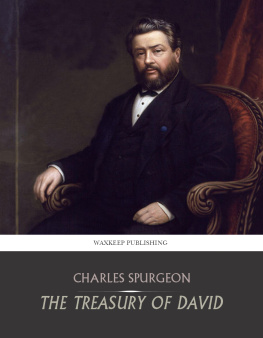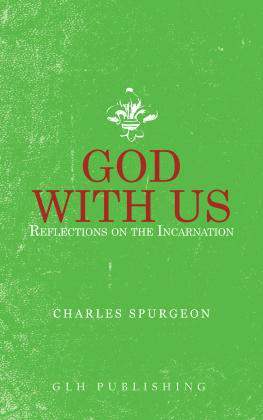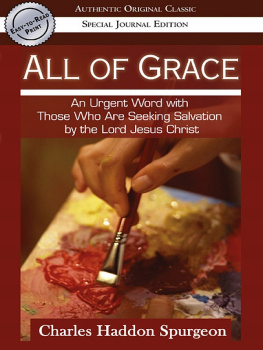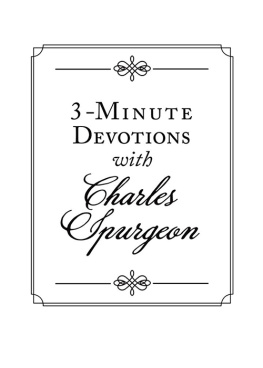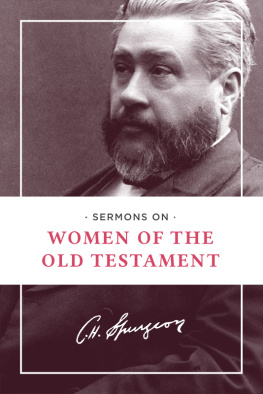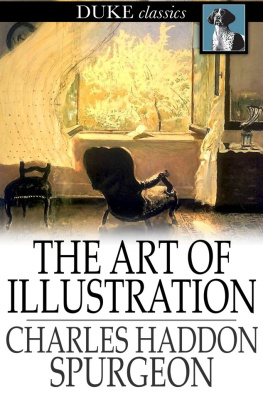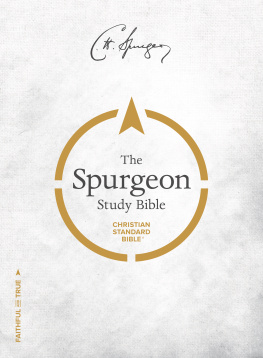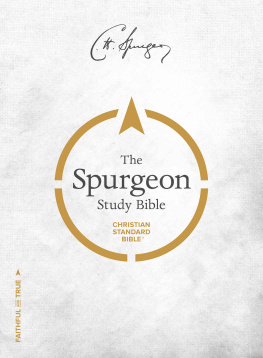CHAPTER 1
First we shall use the text as A CRUCIBLE in which to try our prayers.
I beseech you examine yourselves with rigorous care. Use the text as a refining pot, a furnace, a touchstone, or a crucible by which to discern whether your prayers have been true or not; for this is the test, have they been in very deed praying in the Holy Spirit?
Brothers and sisters, we need not judge those who pray unintelligible prayers, prayers in a foreign tongue, prayers which they do not understand we know without a moments discussion of the question that the prayer which is not understood cannot be a prayer in the Spirit, for even the mans own spirit does not enter into it, how then can the Spirit of God be there? The mysterious words or Latin jargon of the Catholic priests cannot come up before God with acceptance.
Let us therefore keep our judgment for ourselves. There may be those present who have been in the habit of using from their infancy a formofprayer. You perhaps would not dare to go out to your days business without having repeated that form at the bedside; you would be afraid to fall asleep at night without going through the words which you have set yourselves to repeat. My dear friends, may I put the question to you, will you try to answer it honestly: Have you prayed in the Holy Spirit? Has the Holy Spirit had anything to do with that form?
Has He really made you to feel it in your heart? Is it not possible that you have mocked God with a solemn sound upon a thoughtless tongue? Is it not probable that from the random manner in which one comes to repeat a well-known form that there may be no heart whatever in it, and not an atom of sincerity? Does not God abhor the sacrifice where the heart is not found? It would be an unholy thing if we had increased our sins by our prayers.
It would be a very unhappy fact if it should turn out that when we have bowed the knee in what we thought to be the service of God, we were actually insulting the God of heaven by uttering words which could not but be disgusting to Him because our hearts did not go with our lips.
Let us rest assured that if for 70 years we have punctually performed our devotions by the use of the book, or of the form which we have learned, we may the whole 70 years never once have prayed at all, and the whole of that period we may have been living in Gods esteem an ungodly, prayerless life, because we have never worshipped God, who is a Spirit, in spirit and in truth, and have never prayed in the Holy Spirit! Judge yourselves, brothers and sisters, that you be not judged.
But are there not others of us who never did use a written prayer, who from our earliest childhood have avoided and even abhorred forms of prayer, who nevertheless have good reason to judge our prayer just as much as others?
We have given forth extemporaneous utterances, and those extemporaneous utterances necessarily required some little exercise of the mind, some little attention, but still we may have been heartless in them. I suppose we are well aware that we can get into such a habit of extemporaneous prayer that it is really very little or no better than if we repeated what we had learned.
There may be such a fluency acquired by practice that ones speech may ripple on for five or ten minutes, or a quarter of an hour, and yet the heart may be wandering in vanity or stagnant in indifference. The body may be on its knees, but the soul on its wings far away from the mercy seat.
Let us examine how far our public prayers have been in the Holy Spirit. The preacher standing here begs God to search him in that matter. If he has merely discharged the business of public prayer because it is his official duty to conduct the devotions of the congregation, he has much to account for before God; to lead the devotions of this vast throng without seeking the aid of the Holy Spirit is no little sin.
And what shall be said of the prayers at prayer meetings? Are not many of them mere words? It would be better if our friends would not speak at all rather than speak in the flesh. I am sure that the only prayer in which the devout hearer can unite, and which is acceptable with God is that which really is a heart prayer, a soul prayer; in fact, a prayer which the Holy Spirit moves us to pray; all else is beating the air and occupying time in vain!
My brothers and sisters, I thank God that there are so many of you in connection with this church who are gifted in prayer, and I wish that every member of every Christian church could pray in public. You should all try to do so, and none of you should give it up unless it becomes an absolute impossibility; but oh, my brothers and sisters who pray in public, may it not be sometimes with you as with others of us the exercise of gift and not the out flow of divine grace?
And if so, ask the Lord to forgive you of such praying, and enable you to wait upon Him in the power of the Holy Spirit.
We may not forget to scrutinize our more private prayers, our supplications at the family altar, and above all, our prayers in that little room which we have dedicated to communion with God. O brothers and sisters, we might well be sick of our prayers if we did but see what poor things they are! There are times when it is a sweet and blessed thing to lay hold of the horns of the altar, and to feel that the blood which sprinkles the altar has sprinkled you, that you have spoken to God and prevailed.
Oh it is a blessed thing to grasp the angel of the covenant, and to wrestle with Him even hour after hour, saying, I will not let You go except You bless me! But I fear these are not constant things; we may say of them that they are angels visits, few and far between. Come, my brethren, put your prayers into this crucible of praying in the Holy Spirit. You will cast in much metal, but there will come out little of fine gold.
Come, and lay your prayers upon this threshing floor, and thresh them with this text, praying in the Holy Spirit. And oh, how much of straw and of chaff will there be, and how little of the well-winnowed grain! Come, and look through this window at the fields of our devotions, overgrown with nettles, and briars, and thistles, a wilderness of merely outward performances; and how small that little spot, enclosed by grace, which God the Holy Spirit Himself has cleared, and dug, and planted, from which the fruit of prayer has been brought forth unto perfection!
May our heavenly Father teach us to be humble in His presence, as we reflect how little even of our best things will stand the test of His searching eyes, and may those of us who are His saints come to Him afresh, and ask Him to fill us with His Spirit, and to accept us in His Son.
CHAPTER 2
We shall next use the text as A CORDIAL.
It is a very delightful reflection to the Christian mind that God observes His people, and does not sit as an indifferent spectator of their conflicts and difficulties.
For instance, He closely observes us in our prayers. He knows that prayer, while it should be the easiest thing in the world, is not so; He knows that we erring ones find it not always easy to approach Him in the true spirit of supplication, and He observes this with condescending compassion. That is a precious verse for those hearts which are very weak and broken, He knows our frame: He remembers that we are dust, and that other, Like as a father pities his children, so the Lord pities them who fear Him.
He takes notice of our frailties and of our failures in the work of supplication, He sees His child fall as it tries to walk, and marks the tears with which it bemoans its weakness. The eyes of the Lord are upon the righteous, and His ears are open unto their cry.
A sweeter thought remains in the text, namely, that having considered these failures of ours, which are many of them sinful, our Lord is not angry with us on account of them, but instead of being turned to wrath He is moved to pity for us and love towards us. Instead of saying, If you cannot pray, you shall not have; if you have not grace enough even to ask aright, I will shut the gates of mercy against you, He devises means by which to bring the lame and the banished into His presence; He teaches the ignorant how to pray, and strengthens the weak with His own strength.


